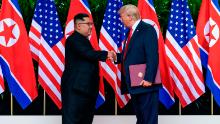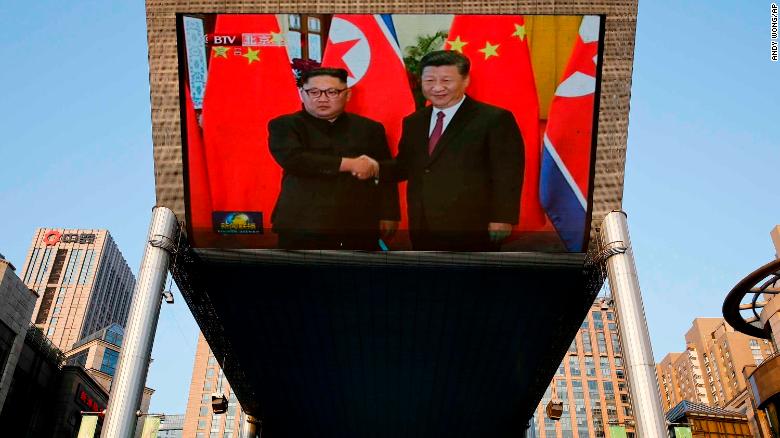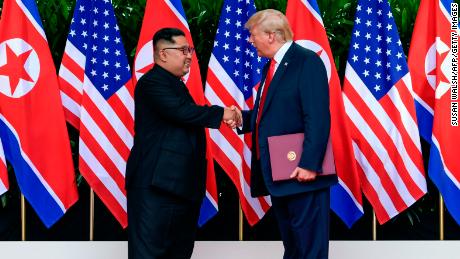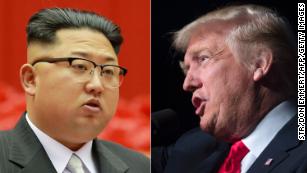In reality, the document he signed with Kim at their June 12 summit in Singapore only reiterated
North Korea's previous commitment to "work toward complete denuclearization of the Korean Peninsula."
Sitting in the Cabinet Room next to Defense Secretary James Mattis, Trump insisted the document read: "We will immediately begin total denuclearization of North Korea,"
an opaque phrase that the United States and North Korea
view differently.
Trump also said North Korea had begun destroying test sites.
But only Wednesday, Mattis said he was "not aware" of any indications that North Korea had taken concrete steps to dismantle any more of its infrastructure for the launching of ballistic missiles or any additional steps to fully denuclearize following the June 12 summit in Singapore between Trump and Kim.
"Obviously, we are at the very front end of the process, the detailed negotiations have not begun," Mattis told reporters on Wednesday. "I wouldn't expect that at this point."
Trump's comments come as South Korean President Moon Jae-in is in Russia, where he is pitching the economic benefits of peace on the Korean Peninsula.
"A great historic transformation is now underway on the Korean Peninsula," Moon said during a speech at the Duma, the Russian Parliament, Thursday.
"A solid peace regime between the two Koreas will also be able to develop into a multilateral peace and security cooperation regime in the region."
Short on details
Kim and Trump became the first two sitting leaders of their country ever to meet face-to-face earlier this month. Trump said he developed a "special bond" with Kim and upon his return to the United States tweeted that
"there is no longer a Nuclear Threat from North Korea."Though many experts and analysts welcomed the developing rapport between the two leaders, in light of last year's heightened tensions, the agreement signed by Trump and Kim was largely viewed as short on specifics.
According to the document, "President Trump committed to provide security guarantees to the DPRK (North Korea's official name, the Democratic People's Republic of Korea), and Chairman Kim Jong Un reaffirmed his firm and unwavering commitment to complete denuclearization of the Korean Peninsula."
It also declared that the "DPRK commits to work toward complete denuclearization of the Korean Peninsula."
Analysts were troubled by the use of that phrase because most believe North Korea has a different definition of the "denuclearization of the Korean Peninsula" than the United States.
Experts believe North Korea sees the "denuclearization of the Korean Peninsula" as something that would involve US or South Korean concessions, including the possible removal of US troops from the Korean Peninsula.
Successive US administrations, including Trump's, have instead stated their ultimate policy goal is the complete, verifiable and irreversible dismantlement of North Korea's nuclear weapons program.
When asked by a reporter about why the words "verifiable and irreversible" were not included in the document signed by Trump and Kim,
US Secretary of State Mike Pompeo said that the word "complete" encompasses "verifiable and irreversible."
He then said he found the question "insulting and ludicrous




